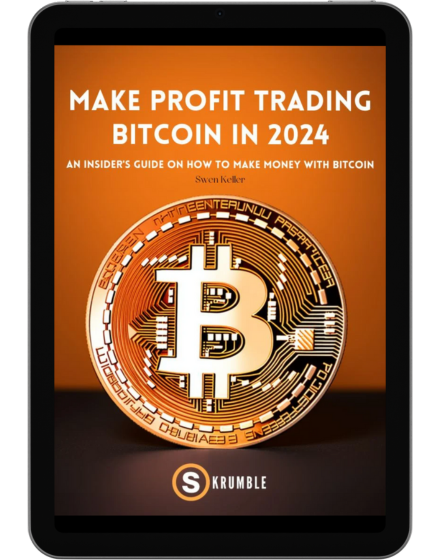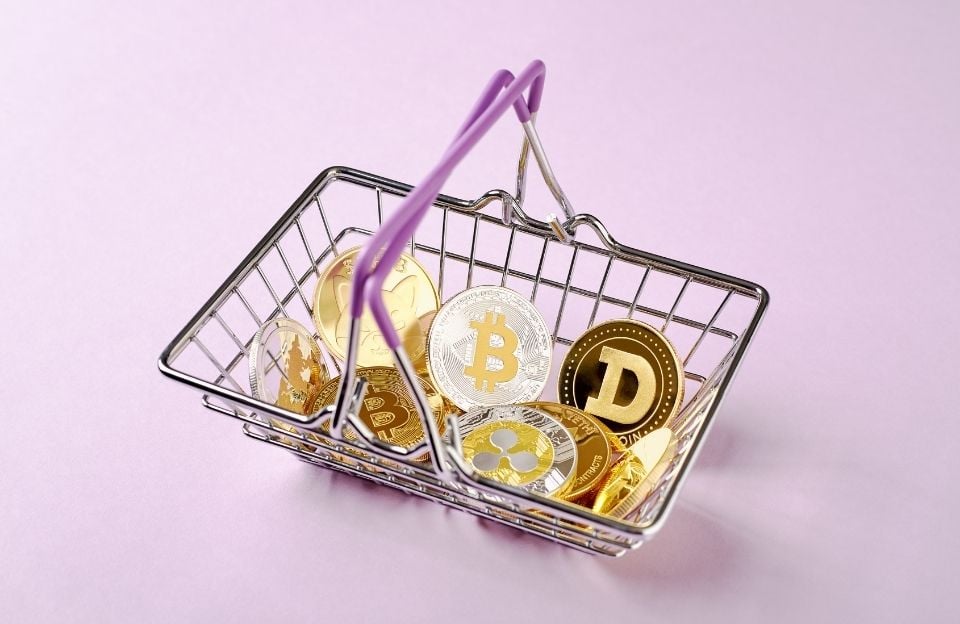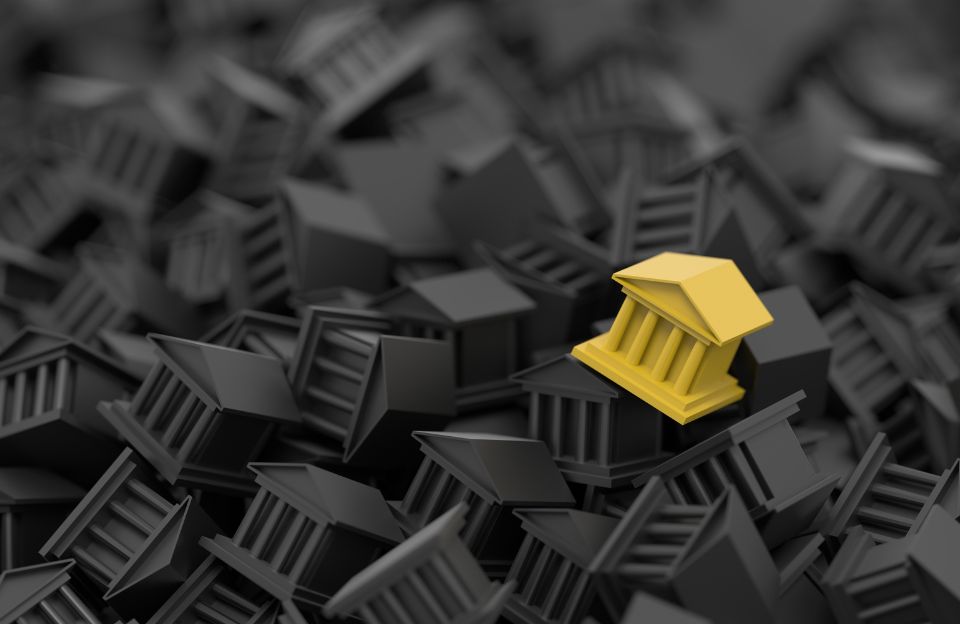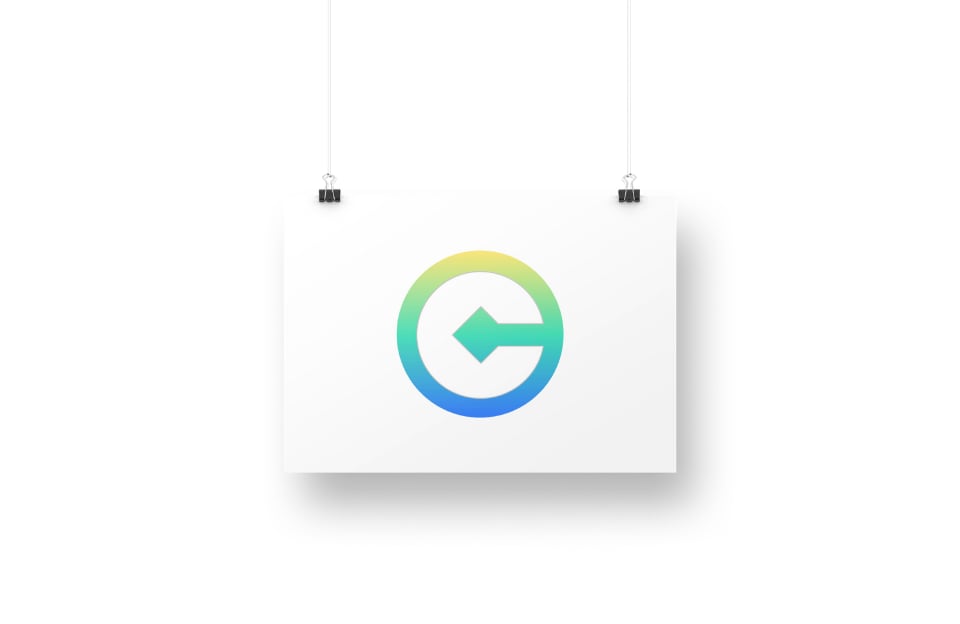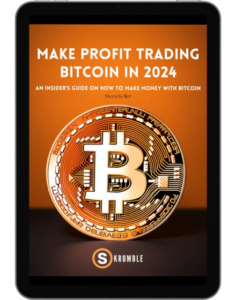Luis Clark
- Home
- /
- Canada & Crypto
- /
- Crypto Guides Canada
- /
- How to buy NFT...
How to buy NFT in Canada: Complete Guide 2023
Luis Clark

Bitcoin was marked with pessimism and indifference when it came onto the scene back in 2009. Today, BTC and other crypto coins are experiencing skyrocketing gains as more and more investors throughout Canada and the world pour into the cryptocurrency market.
This relatively rapid rise in crypto popularity has led to an equally rapid rise in blockchain technology and the emergence of a new digital asset: NFTs.
Non fungible tokens, or NFTs for short, are the talk of the town these days with stories of huge sales coming out almost every single day. Whether you’re reading the financial news, scrolling through IG, or just waiting for an annoying “sponsored ad” to end, it’s virtually impossible to escape blockchain discussions involving NFTs.
However, while NFTs are a new and exciting way of investing in blockchain and the broader surrounding cryptocurrency market, wrapping your head around them can be a bit difficult at first. That said, once you start to understand NFTs and how they work, their potential as excellent investment vehicles will become abundantly clear.
In fact, some NFT collections are already commanding billions of dollars. How are people making such fortunes with NFT ownership, and more importantly, how can you?
In this guide, we pull back the curtain on NFTs and the NFT market to reveal how they work from the ground up. Whether you’re looking to lock in value by investing in a digital blockchain asset like an NFT, are making money with crypto but want to branch out, or simply want to learn more about this rising form of blockchain investment, you’ve come to the right place.

As crypto enthusiasts, we made it our mission to dive deep into NFTs and learn all we could. If you’re looking to invest in NFTs in Canada, we’ll tell you all you need to know. We break down what NFTs are, how they work, and how to discover and purchase your very own.
What are NFTs?
An NFT is a unique non fungible token representing ownership of digital art, digital collectibles, or even a real world asset such as a car or home. Unlike fungible digital assets like Bitcoin and other crypto, non fungible tokens like NFTs aren’t interchangeable. In fact, that’s literally what non fungible means.

In other words, one NFT doesn’t have the same value as another. Each one is unique. However, like crypto and other digital assets, NFTs can be purchased and sold by anyone in Canada on an NFT exchange or marketplace, for example that integrates with smart contracts on the Ethereum blockchain.
You see, NFTs, like crypto, exist on the blockchain. This means an owner of an NFT, such as a digital “painting,” can be publicly verified. As long as the blockchain points to you, no one can dispute your ownership. Conversely, no one can falsify ownership of a digital NFT.
In this regard, NFTs in Canada and elsewhere are similar to a certificate of authenticity, and when you think of them this way, the whole wide world opens up as you begin to see their limitless uses.
Recently in 2021, a single NFT sold for a whopping US$69 million. Total NFT sales the same year reached US$10.7 billion. So, it’s safe to say crypto and NFTs are both here to stay.
Now that you know what NFTs are all about, let’s go over how they work.
How do NFTs work?

NFTs live and breathe on a blockchain network, which is a digital ledger responsible for recording all cryptocurrency transactions. In fact, many NFTs run on the Ethereum blockchain today, which means you can buy NFTs and sell NFTs in Canada with Ethereum on any number of NFT marketplaces.
That’s right; you can’t simply fork over your Canadian dollars for an NFT. Well, you can and you likely have if you’re here reading about NFTs, but there are a few steps involved along the way.
We’ll get to these steps in a minute, but for now just know that once purchased, NFT tokens must be stored in digital wallets for safekeeping. Due to the potential value of the digital trading asset, a cold wallet is recommended.
Also know that the underlying blockchain allows anyone to see the asset history and check its authenticity. The data within the blockchain serves as an official copy of some piece of digital media, giving artists, musicians, and others the ability to make money selling digital goods.
With such possibilities, it’s not surprising so many big names have started to buy NFTs in Canada, the US, and around the world. With so much attention now being paid to the digital assets market thanks to crypto and now NFTs, there is an undeniable buzz underpinning the entire asset class.
What makes NFTs valuable?

As we just covered, some NFTs are more valuable than others. So, what gives an NFT its value? For Canadians and anyone else, it all comes down to perceived value, which is affected by popularity, scarcity, and certifiable ownership.
When you buy NFTS from a marketplace or exchange, proof of the purchase and the transfer of ownership are etched into the blockchain. This acts as a certificate of ownership for the digital art you just purchased. When you decide to sell the NFTs, the transfer of ownership is once again etched into the blockchain, so the entire transaction history is recorded.
Despite similarities in how they are bought and sold, some NFTs are worth far more than others. In fact, some NFTs never sell, while others, like digital art from “Beeple,” sell for millions on the open market.
Why would anyone create an account and send millions of dollars through an NFT marketplace for something others can see for free online? Once again, it all comes down to perceived value. While you can view scanned photos of the Mona Lisa for free online, it doesn’t mean you own the multimillion-dollar painting.
How to Buy NFTs in Canada

Embark on Your NFT Journey in Canada: A Step-by-Step Guide to Purchasing NFTs and Exploring the Thrilling Possibilities of this Digital Frontier. Start Today and Dive into the World of NFTs with Confidence.
Step One – Create a Crypto Exchange Account
Since most NFTs run on the Ethereum blockchain and not Binance Smart Chain, Bitcoin, or another crypto blockchain, you need to purchase Ether (ETH), its native coin, from a cryptocurrency exchange in order to own NFTs.
You can begin by opening a crypto trading account with a reputable and regulated crypto exchange for Canadians like Coinsquare or Shakepay. Unlike some cryptocurrency exchanges in Canada, both are regulated and used by millions to buy and sell a variety of crypto assets.
For most crypto exchanges, you can deposit funds in your account by making an Interac e transfer from your Canadian bank account to the platform. You can also purchase crypto in Canada using a bank draft, your credit or debit card, or with your own cryptocurrency.
Step Two – Buy Ethereum

Once your exchange account is funded with Canadian dollars, you can purchase cryptocurrency, including ETH. Since most NFTs run on this coin’s blockchain, you will need to buy some Ether from your crypto exchange.
Step Three – Create a Metamask Account

Never heard of Metamask? No worries, many people haven’t. Metamask is like your own personal digital crypto wallet. Unlike other digital wallets, however, the Metamask wallet is a browser extension designed to let you interact with decentralized apps, known as dapps, where you’ll find NFT marketplaces to browse.
If you come across a winner at a specific marketplace after browsing through NFTs or collectibles platforms like Cryptopunks, then your Metamask wallet is where you’ll send your purchased Ether to. It’s also where you’ll store your digital marketplace purchases and NFTs.
Step Four – Transfer Ether to Your Metamask Wallet
After getting your Metamask account all set up, you’ll need to transfer some ETH from your Canada exchange account or crypto wallet to your new Metamask wallet. Then, you’ll be ready to browse all of the NFT marketplaces in search of your diamond in the rough.
The key to personal finance, growing wealth, and crypto trading is gaining value by buying low and selling high. This step allows you to move onto the next and do exactly that with NFTs.
Step Five – Browse and Buy at an NFT Marketplace
Now comes the fun part – looking for NFTs. You should now be able to log into several different large marketplaces, including the OpenSea NFT marketplace and Rarible marketplace, which are two of the biggest digital platforms for NFT in existence today.
Unlocking the Distinctive Nature of NFT Platforms: Understanding the Diverse Security and Functionality Factors Setting Them Apart. Navigate the Varying Landscape of NFT Marketplaces, Just Like Crypto Exchanges, for a Thriving Digital Journey.
Where to Buy NFTs in Canada
The good thing about this step of the NFT buying process is the fact that it doesn’t matter whether you’re in Canada or even what part of Canada you’re in. Purchasing NFTs is completely legal anywhere in our great white north, so you can buy crypto and earn interest or exchange that crypto to buy NFT or sell NFT until your heart’s content. Once you buy Ether with Canadian dollars, the entire world opens up digitally.
While there are dozens of NFT platforms and marketplaces out there to peruse, we’ll just focus on two of the most popular: OpenSea and Rarible.
OpenSea

As the oldest NFT marketplace, OpenSea is also one of largest and one of the best platforms to get started buying NFTs as a beginner. Sort of like the eBay of NFTs, OpenSea leads all other NFT marketplaces in user-friendliness, education, tools, and NFTs to select from.
Rarible

Rarible is a bit newer on the NFT block, but it’s gained a lot of traction with a ton of new users in a few short years. It’s another open NFT marketplace but focuses more on artwork than other types of NFTs.
What are Gas Fees?
In the world of crypto and NFTs, gas fees are like a toll on the blockchain highway you must pay in order to drive. So, if you buy or sell something on the Ethereum chain, you will need to pony up for a gas fee.
Most gas fees are measured in Gwei, and one billion Gwei equals one Ether. While gas fees are miniscule in comparison to the price of Ether, the sheer volume of people with Ether transactions passing back and forth to their digital wallet has made gas fees quite high.
In fact, as of today, it can cost up to $60 or more CAD just to buy or sell an NFT. This is the gas fee.
Final Thoughts
Unless you’ve been hiding under a pile of loonies, it’s easy to see crypto and NFTs are taking over. As NFT stands currently, it’s a multibillion-dollar market whose value is expected to creep into the trillions in the not-too-distant future.
Explore the Boundless Potential of NFTs: Embrace a World of Digital Trading, Art, Music, Tickets, and Beyond! Enhance Your Understanding of NFTs and Empower Yourself for Profitable Ventures in this Evolving Landscape.
Our extensive analysis of the Canadian Crypto Space doesn’t stop here. You can also check out our Guide on which Canadian Banks allow cryptocurrency.
FAQ
Most frequent questions and answers
Yes, like crypto, NFT is taxed as capital gains or business income in Canada.
Yes, you can sell NFT anywhere in the Canadian provinces by following the simple steps outlined in this guide.
NFT can be bought and sold on any NFT marketplace, including OpenSea and Rarible.
Skrumble.com provides all its content for informational purposes only, and this should not be taken as financial advice to buy, trade, or sell any investment instruments or products, including but not limited to cryptocurrencies, or use any specific exchange. Please do not use this website as investment advice, financial advice, or legal advice, and each individual’s needs may vary from that of the author. Investing in financial instruments, including cryptocurrencies, carries a high risk and is not suitable for all investors. It is possible to lose the entire initial investment, so do not invest what you cannot afford to lose. We strongly advise conducting your own research before making any investment decisions. This post includes affiliate links with our partners who may compensate us.
To view our privacy policy read here.

